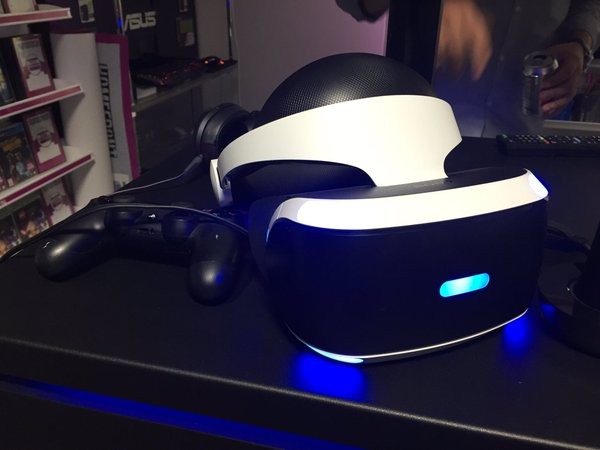Virtual reality's growth shown in the spike of devices and content available has made the VR industry marketable for investors, based on a new research report. Nomura Securities analysts recommended three publicly-traded companies that are earning the biggest revenue from the growth of VR, which include Facebook, Sony, and Samsung.
Nomura recommended Facebook due to its earning profits from subsidiary Oculus starting in 2020, according to Investor's Business Daily. That is due to high profit margins from royalty revenue.
The Japanese holding company also recommended Sony, which is set to launch its PlayStation VR headset on October 13. It believes high sales for the PS4 console will drive PS VR sales.
Nomura also believes Samsung will get a percentage of the VR business via component sales. That is due to its manufacturing of organic light-emitting diode (OLED) displays in VR headsets, and memory chips.
Facebook started the VR craze in March when it rolled out its Oculus Rift headset. HTC then launched its Vive headset in April. Sony's VR gadget will hit the market before this year's holiday shopping season.
The holding company believes Sonywill ship an industry-leading 700,000 PSVR units this year. That will be followed by 500,000 HTC Vive units, and up to 400,000 Oculus Rift units.
Nomura predicts that total shipments of VR headsetswill skyrocket from less than 2 million units this year, to 40 million units in 2020. It also believes the consumer VR market will surge to $10 billion in 2020. That includes products such as VR headsets, accessories, and software.
Meanwhile, Nomura also believes low-cost mobile VR headsets that work with smartphones such as Google Cardboard will be popular as entry-level gadgets. It predicts Samsung will ship 4 million Gear VR units in 2016.
The company also pointed out that there are some possible factors that could slow the growth of VR tech. They include little content and evolving hardware performance.
In related news, Samsung has made changes to its Milk VR app that works with its Gear VR headset. The VR app was launched on Google's Play Store in April.
However, Milk VR will now be called Samsung VR. This will make the mobile app easier to recognize for owners of Galaxy devices, and people who have not experienced Samsung's VR ecosystem.
Samsung also announced on June 22, Wednesday at VidCon that it will now allow user-created content in the Samsung VR app, according to Android Headlines.
Here's a video on PSVR:






















